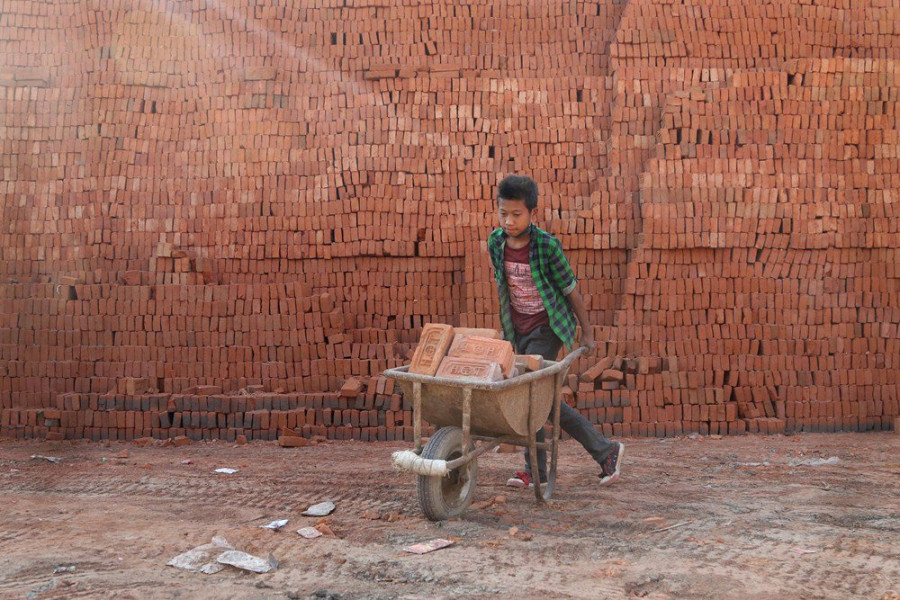National
Covid-19 fuelling child labour in Nepal, a new Human Rights Watch report says
With little support from the government, children have been forced to work for long gruelling hours for low pay.
Post Report
The unprecedented economic impact of the Covid-19 pandemic, coupled with school closures and insufficient government assistance, is pushing children into exploitative and dangerous child labour in Nepal, along with Ghana and Uganda, Human Rights Watch said in a report released on Wednesday.
It said the second wave of the Covid-19 pandemic in Nepal puts children at even greater risk of child labour in the wake of new lockdowns and rising illness and death rates among caregivers. The report examines the rise in child labour and poverty during the Covid-19 pandemic, and the pandemic’s impact on children’s rights.
The report based on the study carried out among the children says they complained about long hours of work, grueling hours for little pay after their parents lost jobs or income.
“Many children feel they have no choice but to work to help their families survive, but a rise in child labour is not an inevitable consequence of the pandemic,” Jo Becker, children’s rights advocacy director at Human Rights Watch, is quoted in the statement issued by the New York-based human rights organisation, as saying. “The Nepali government and international donors should expand Nepal’s relatively small cash transfer program to keep children out of exploitative and dangerous child labour.”
Nearly all of the 25 Nepali children interviewed for the study said that the pandemic had a negative effect on their family income, said the statement.
Many children, as per the report, entered the workforce for the first time to support their families. Some said they decided to work because their families didn’t have enough food and they continued to do so even after lockdown restrictions were eased.
The study found that one-third of the children interviewed in Nepal worked at least 12 hours a day, some seven days a week. Children reported fatigue, dizziness, and pain in their backs, legs, knees, hands, fingers, and eyes from repetitive motions, sitting for extended periods, or carrying heavy loads.
“My fingers hurt from knotting the threads,” a 14-year-old girl, who worked in a carpet factory for nearly 18 hours a day, is quoted in the statement. “My eyes hurt from looking at the design map … and I sit down for hours so it really hurts my legs.”
Although Nepal’s minimum wage is Rs 13,450 rupees a month or 517 rupees per day, the majority of children interviewed for the study made far less. Several who worked in carpet factories and brick kilns said their employers paid their parents based on a piece rate instead of paying them, according to the statement.
Human Rights Watch says the school closures also contributed to an increase in child labour.
Although the Education Ministry provided distance learning programmes through the internet, radio, and television, UNICEF reported that two-thirds of around eight million schoolchildren were unable to access them.
“There was nothing to do at home since school shut down,” a 14-year-old boy is quoted as saying. “And with everybody at home, we started to run out of food quickly. I decided to go to work, because what else was I going to do?”
Human Rights Watch interviewed children in January and February 2021, after most schools had reopened. However, not all had returned to school, saying that their family still needed their help or had fallen into debt, or had dropped out permanently.
The right body said the researchers focused on Nepal, Ghana and Uganda because they have made significant progress in reducing poverty and child labour, and have committed to accelerating efforts to eradicate child labour by 2025 in line with the United Nations Sustainable Development Goals.
“However, each has lagged behind their regional peers in using cash allowances to address the Covid-19 crisis, spending less than neighboring countries and covering a smaller proportion of households with children,” says the report.




 13.12°C Kathmandu
13.12°C Kathmandu













